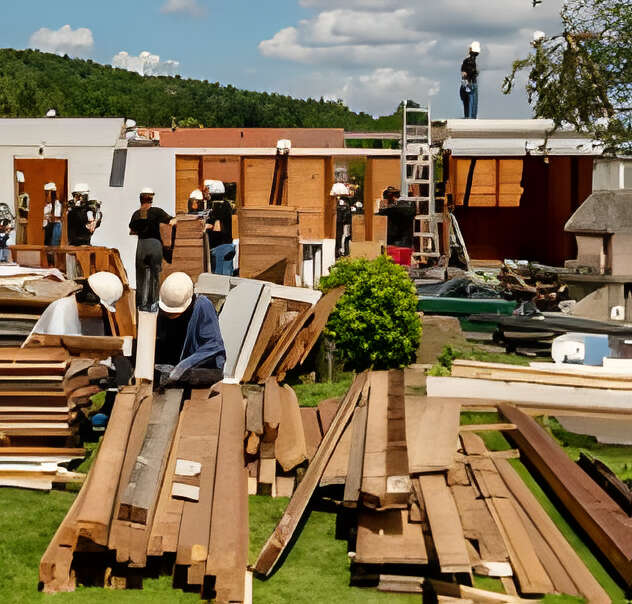
The Circular Engineering for Architecture (CEA) lab at ETH Zurich, along with collaborators such as Anku Artisans of the Great Outdoors, Materiuum, Rotor, Windows for Ukraine (Re-WIN), Salza, Cirkla, and other reuse actors, disassembled old structures set for demolition, such as the Fiat/Lancia warehouse in Geneva and the Music Pavilion of a psychiatric clinic in Zurich, and used the reclaimed materials to build domes, school cabins, yurts, and other structures. The left-over pieces from these constructions were too small to reuse in other structures or buildings. This is why the CEA lab and Anku repurposed these waste elements in these stools for the Future Cities Lab. The stools serve as an example of how waste materials can be upcycled and integrated into new designs, promoting sustainability and circularity in the construction sector.
Anku built cabins for a school in the forest in Saxon and Martigny, with natural and reused materials. After the construction site, a series of little pieces of wood were left over. These waste elements were upcycled in this stool. A film was made on the teachings of circular economy principles to schoolchildren through the participatory design of such school cabins, which were designed for dis- and re-assembly, based on vernacular architecture in Swiss, Canadian, and Nordic countries. Moreover, Anku also builds modular structures and furniture in bamboo. The leftovers from these structures are just what was needed to make this stool the right size for the exhibition.
A transition to a circular economy, in which used materials may become valuable resources for a new production cycle, is urgently needed. This project aims to develop integrated frameworks and tools based on advanced digital technology for informing the design, construction and management of circular buildings and deploying more effective resource solutions. It addresses the questions of which contributions future circular cities can make to lower adverse environmental impacts and how to derive tailored, site-specific system solutions for sustainable housing.
Find out more about